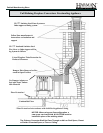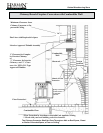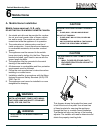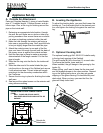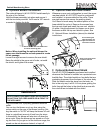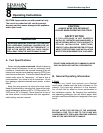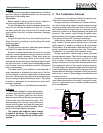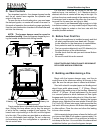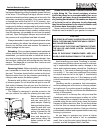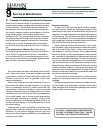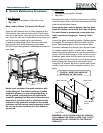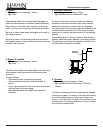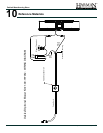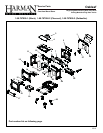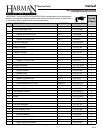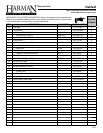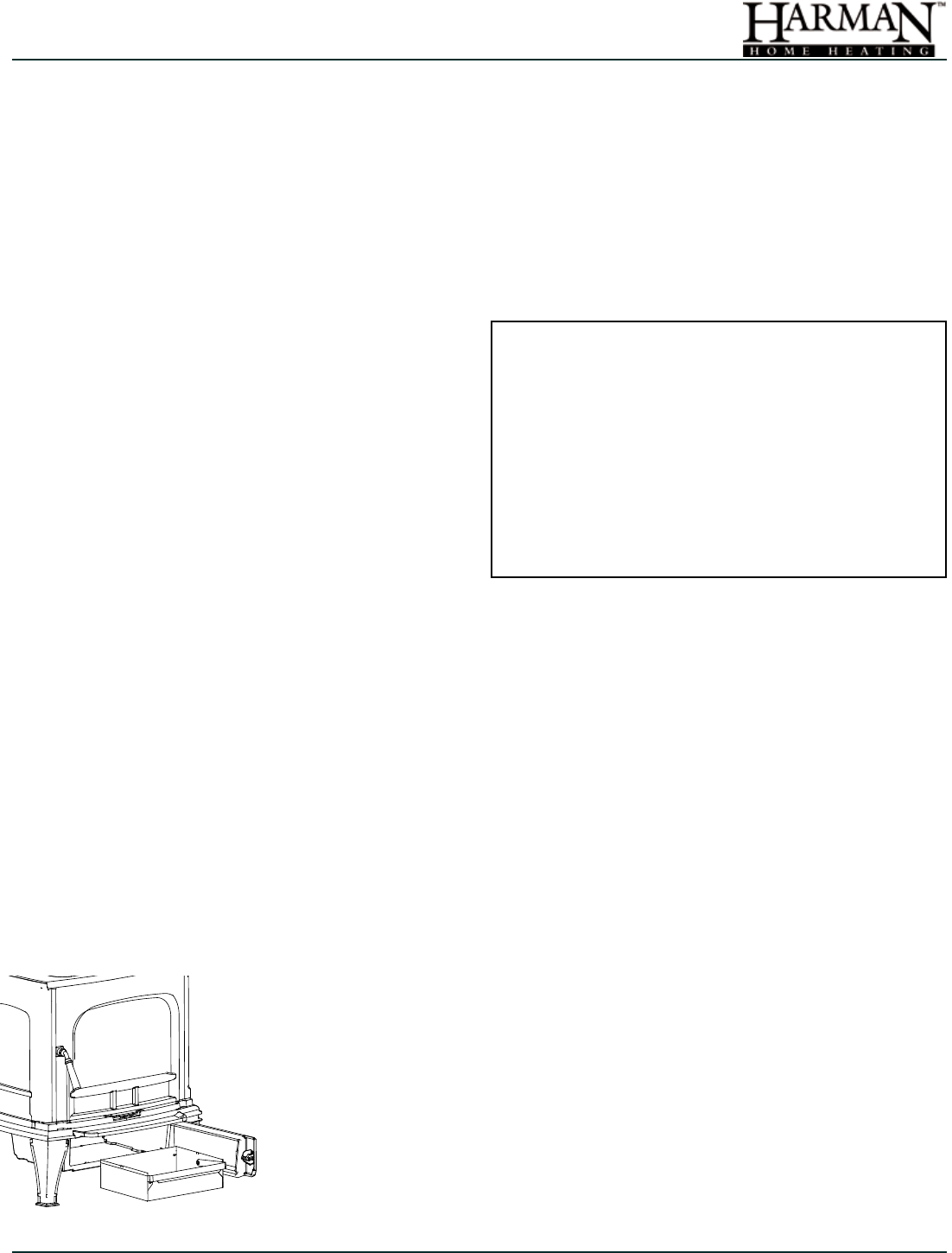
27
Save These Instructions 3-90-798 Dry Seasoned Wood Only!
Always remember to open the bypass damper when
you are loading, this allows the exhaust gases to pass
directly into the ue outlet and reduces the chance of
smoke spillage into the room.
Once you have prepared and maintained
a thick charcoal bed, and the secondary combustion is
established, you should be able to reload the stove at
any time by simply opening the bypass damper, then
the load door, adding fuel and closing the door then the
damper. This depends on coal bed size, load size and
moisture content of fuel.
Before reloading, empty the ash
pan (remember to close the ash door while emptying
the pan). The ashes should be the coolest at this time.
Remove ashes from the re chamber periodically by
raking a poker across the bottom grates.
Excessive ash buildup can prevent proper venting
of exhaust gases. Do not allow the ash pan to over-ll.
Ash buildup between the ash pan and the bottom of
the grate can cause the grate to overheat and wear out
prematurely.
The Oakleaf is designed to provide access to the
ash pan without the need for opening the main door.
Before opening the ash
door and removing the
ash pan, open the by-
pass damper. Wearing
heavy protective gloves,
open the ash door and
remove the ash pan by
pulling it forward by the
handle. Close the ash
door and damper by-
pass before taking the
ashes outside for safe
disposal.
Avoid overring your stove. Overring is a poten-
tially hazardous situation which can lead to overheat-
ing of combustible materials nearby, damage to the
stove, and in extreme cases, cause a re. Overring is
caused by: 1. Too much air owing through the stove
too quickly. 2. You may have positioned the primary
air control lever too far to the right. 3. Inadvertently
leaving the damper open or 4. Not keeping up with
routine maintenance, such as checking door gaskets
for wear.
Overring results in excessive fuel consumption,
and may cause parts of the stove or chimney connec-
tor to glow red. If you notice signs of overring, reduce
the air supply to the re, and review the Maintenance
section in this manual.
In the event of a chimney re, call your local re
department; make sure everyone is safely out of the
house. Reduce the air intake of the stove as much as
possible using the air control lever; close the bypass
damper to further restrict air ow. Do not throw water
on the re; this can cause stove damage and create
an even more dangerous situation. Have your chimney
professionally cleaned and inspected before resuming
burning in your stove.
As you begin to operate your stove at higher
temperatures, you will notice a “hot” or unpleasant
smell; this is just the paint going through the curing
process, and will disappear after a few res.
Never use the ash disposal container for other trash.
Wood ash can be added to your garden or compost.
Providing you have the charcoal bed described, close
the bypass damper by pulling the handle toward the front
of the stove. This will begin the highly efcient mode of
operation where the exhaust gases get re-burned in the
secondary combustion package. If you cannot achieve
a charcoal bed within the rst 15 to 20 minutes, your
wood is likely too wet, and you may need to burn the re
longer and/or hotter to compensate for the extra energy
needed to drive out the moisture. If, after ve minutes of
burning with the damper closed, smoke is visible coming
from the chimney, you probably do not have the proper
coal bed. Open the bypass damper and continue with
the process until a signicant coal bed is formed.



